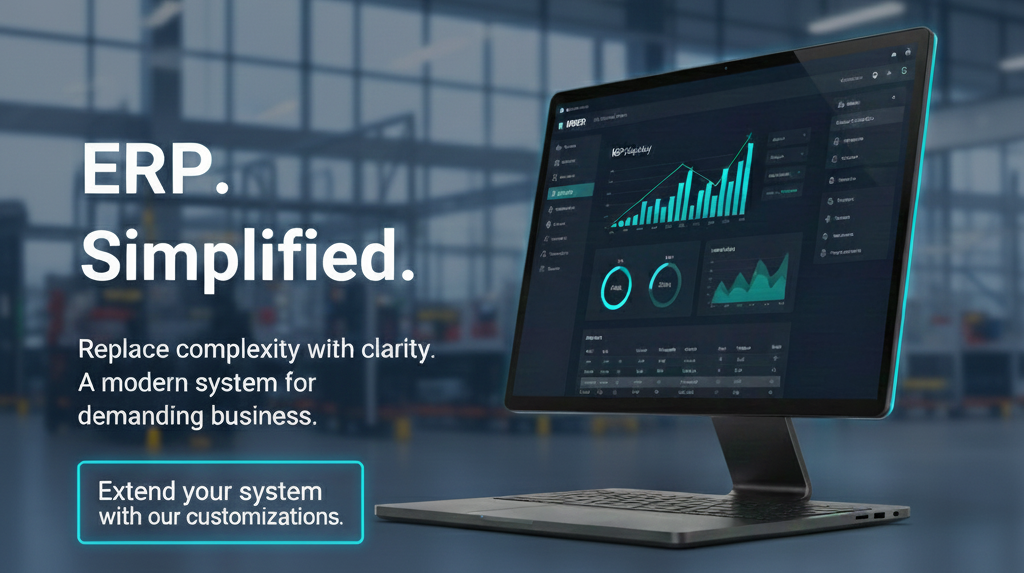Discover the top reasons IFS Cloud implementations fail and learn expert strategies to avoid costly mistakes. Get actionable advice on selecting the right consultant, planning for data migration, and ensuring post-launch success with tailored training and support.
The Three Biggest Risks in IFS Cloud Implementations
Many companies blame the software when their IFS Cloud implementation fails. However, the real issue is often poor advice and inadequate planning. Understanding the risks and how to mitigate them is crucial for a successful transition.
1. Dirty Data, No Rollback Plan, and Legacy System Chaos
Poor data quality and lack of a rollback plan can lead to significant downtime, costing businesses $10,000 or more per day. Without a pre-migration audit, companies risk encountering unexpected issues that disrupt operations. A zero-downtime cutover plan is essential to minimize disruptions and ensure a smooth transition.
2. Generic Training Wastes Time and Resources
Generic training programs often fail to address the specific needs of different user roles, resulting in inefficiencies and prolonged adoption periods. Role-based workflows and tailored simulations can reduce training time by 40%, ensuring users are fully prepared to utilize IFS Cloud effectively.
3. Insufficient Post-Launch Support
Half of the issues in IFS Cloud implementations arise after the system goes live. Without 90-day hypercare support, companies may struggle to resolve these issues, leading to increased costs and user frustration. Securing comprehensive post-launch support is critical for long-term success.
How to Choose the Right Consultant
Selecting the right consultant is key to avoiding common pitfalls in IFS Cloud implementations. Here’s what to look for:
- Industry-Specific Experience Ensure the consultant has experience in your industry, as IFS Cloud requirements can vary significantly between sectors like aerospace and field service. Ask for case studies to verify their expertise.
- Technical Knowledge The consultant must have in-depth knowledge of IFS Cloud, its integrations, and agile project management practices. This ensures they can handle complex implementations and adapt to changing requirements.
- Transparent Contracts Avoid fixed-price contracts that may hide gaps in scope or deliverables. A transparent agreement with clear milestones and deliverables is crucial for maintaining accountability and achieving success.
A qualified consultant will deliver faster ROI, minimize hand-off risks, and provide global expertise tailored to your business needs.
Step-by-Step Guide to a Successful IFS Cloud Implementation
Step 1 Conduct a Pre-Migration Audit
Begin with a thorough audit of your current data and legacy systems. Identify potential issues and create a zero-downtime cutover plan to avoid costly disruptions during migration.
Step 2 Implement Role-Based Training
Replace generic training with role-based workflows and simulations. This approach ensures users receive relevant training, reducing the learning curve and improving system adoption.
Step 3 Secure 90-Day Hypercare Support
Demand at least 90 days of hypercare support post-launch. This support should include troubleshooting, performance optimization, and user assistance to address any issues that arise.
Step 4 Choose the Right Consultant
Select a consultant with proven experience in IFS Cloud, integrations, and agile project management. Verify their track record with case studies and references to ensure they can meet your project’s needs.
Next Steps for a Successful Implementation
To further ensure the success of your IFS Cloud implementation, be aware of the key red flags to consider when selecting a consultant. Learn more about what to watch out for in our guide on red flags in IFS Cloud consulting.
Need a roadmap for your IFS Cloud journey? Contact us to discuss how we can help you avoid common pitfalls and achieve a seamless implementation.

